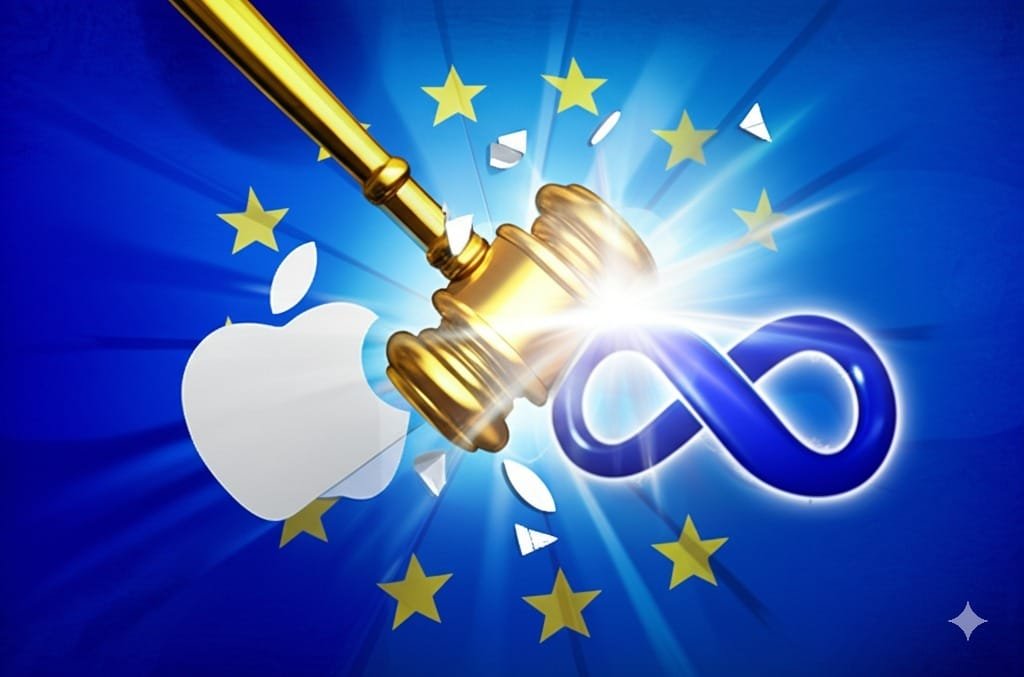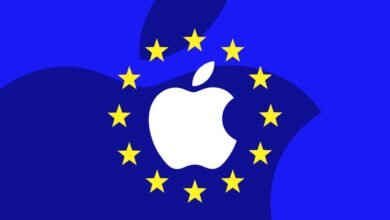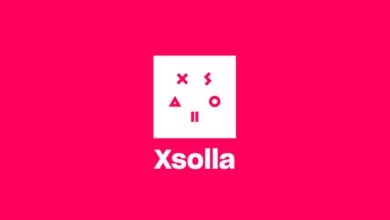Apple’s New Slogan Should Be ‘Act Different'”: EU Issues First DMA Charges Against Tech Giants

▼ Summary
– The European Union issued its first formal charges under the Digital Markets Act (DMA) against Apple and Meta, alleging non-compliance with rules aimed at creating a fair digital economy.
– Apple faces scrutiny for its App Store policies, particularly the “anti-steering” rules that restrict developers from informing users about cheaper deals outside the App Store.
– The EU is investigating Apple’s “Core Technology Fee,” which charges developers €0.50 per user annually for popular apps, potentially creating barriers to alternative distribution methods.
– Meta is charged over its “pay or consent” model, which requires users to either consent to data usage for personalized ads or pay a subscription fee, possibly violating the DMA’s requirement for a freely given choice.
– Apple and Meta have the right to respond to the charges, and if unresolved, could face significant fines up to 10% of their global annual turnover, setting important precedents for DMA enforcement.
The European Union has taken a major step in enforcing its landmark Digital Markets Act (DMA), issuing its first formal charges – known as statements of objections – against tech giants Apple and Meta. Announced in June 2024 following investigations launched in March, these preliminary findings allege failures by both companies to comply with rules designed to create a more level playing field in the digital economy.
The charges signify the European Commission believes it has solid evidence of non-compliance, setting the stage for potential significant fines and mandated changes if the companies don’t adjust their practices.
Apple Faces Scrutiny on App Store Rules and Fees
Apple became the first company charged under the DMA, primarily concerning its App Store policies implemented in response to the new law. The Commission’s objections focus heavily on Apple’s “anti-steering” rules.
Margrethe Vestager, the EU’s Executive Vice-President in charge of competition policy, stated the Commission’s stance clearly: “Our preliminary position is that Apple does not fully allow steering. Steering is key to ensure that app developers are less dependent on gatekeepers’ app stores and for consumers to be aware of better offers.”
The DMA requires gatekeepers like Apple to allow developers to freely inform users about cheaper deals or content available outside the App Store. The EU alleges Apple’s current system, which permits developers only to include a “link-out” to an external webpage (often accompanied by warning screens and subject to fees), unduly restricts this freedom. The Commission contends these restrictions prevent developers from “communicating, promoting offers and concluding contracts through the distribution channel of their choice,” potentially violating the DMA’s requirement for steering to be “free of charge.”
Alongside the steering issue, the Commission opened a separate investigation into Apple’s new EU business terms, particularly the controversial “Core Technology Fee” (CTF). This fee requires developers with popular apps (over 1 million installs) to pay €0.50 per user annually, even if the app is free or distributed outside the App Store. Regulators are examining whether this fee and associated requirements create prohibitive barriers for developers seeking to use the alternative distribution methods the DMA aims to enable.
Thierry Breton, European Commissioner for Internal Market, expressed his view sharply: “Apple’s new slogan should be ‘act different’. Today we take further steps to ensure Apple complies with the DMA rules. We have reason to believe that the AppStore rules not allowing app developers to communicate freely with their own users is in breach of the DMA.” He added that the EU is “determined to use the clear and effective DMA toolbox to finally open real opportunities for innovators and for consumers.”
Apple, in response to the initial investigation, stated: “Throughout the past several months, Apple has made a number of changes to comply with the DMA in response to feedback from developers and the European Commission. We are confident our plan complies with the law.” More recently, facing fines, an Apple spokesperson reiterated the company’s intent to appeal while continuing discussions.
Meta’s ‘Pay or Consent’ Model Under the Microscope
Meta, owner of Facebook and Instagram, faces charges over its “pay or consent” model introduced in the EU. This system requires users either to consent to their data being combined and used for personalized advertising or to pay a monthly subscription fee for ad-free access.
The Commission’s preliminary view is that this binary choice may violate the DMA. The core concern is whether forcing users between paying a fee or consenting to data combination provides the “less personalised but equivalent alternative” service required by the regulation if consent is refused. The EU suggests this model might effectively coerce users into consent, undermining the principle of a freely given choice.
While Meta introduced a revised model later in 2024 offering an option allegedly using less personal data, the charges pertain to the period when the initial binary choice was the only option presented after the DMA became binding.
Meta has pushed back against the EU’s actions. While specific quotes regarding the June charges are less prominent in search results, earlier statements regarding regulatory pressure indicated frustration. Facing fines in April 2025 (related to the same investigation timeline), Meta stated: “The European Commission is attempting to handicap successful American businesses while allowing Chinese and European companies to operate under different standards.”
What’s Next in the DMA Showdown?
These statements of objections are a critical step, but not the final word. Apple and Meta have the right to respond formally to the Commission’s findings, present their arguments, and potentially request hearings.
If the companies cannot resolve the Commission’s concerns through dialogue or changes to their practices, final non-compliance decisions could follow. Such decisions can carry hefty fines – up to 10% of a company’s global annual turnover for a first offence, potentially rising to 20% for repeat violations. For Apple, based on recent revenue figures, a 10% fine could theoretically reach tens of billions of dollars.
The outcomes of these first DMA enforcement actions will be pivotal, setting precedents for how Europe’s new digital rulebook will be applied and impacting the strategies of major tech platforms operating within the bloc. As Vestager noted, the EU is relying on input from the wider community, including SMEs, urging them that “we need your input” to ensure the DMA works effectively.







